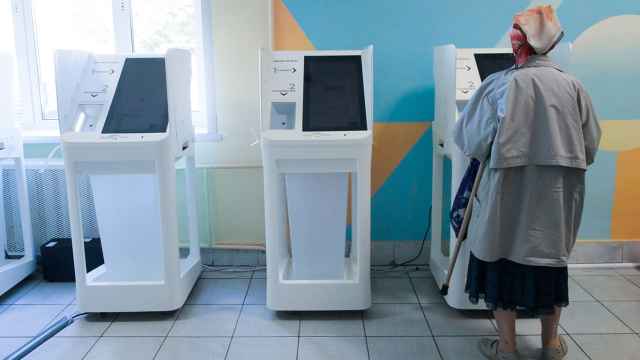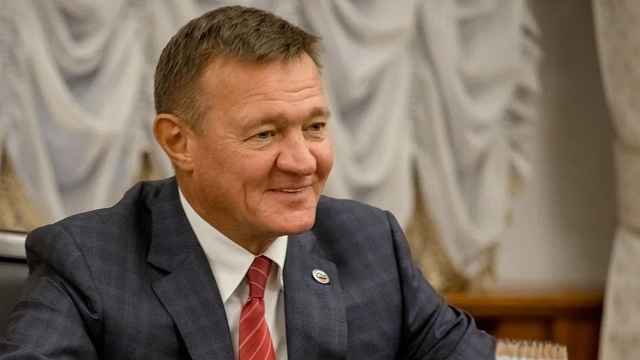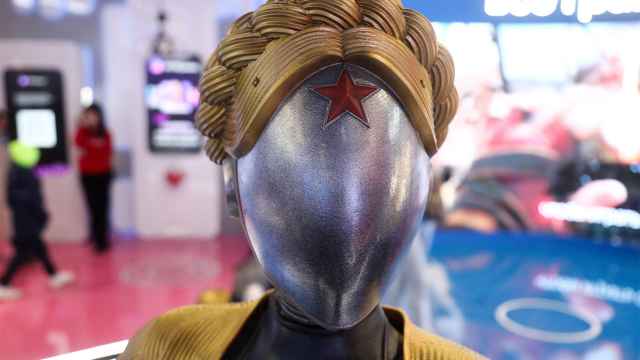Elections matter very much in Russia. According to the official figures, half of those who cast their ballots on Dec. 4 voted for the governing United Russia party, the other half for parties in opposition. In effect, the ruling party lost 15 percent of its 2007 voters, while other parties saw a significant increase in their electoral support. In other words, because of the choices made by Russia's voters, the composition of the new State Duma will change substantially.
Our assessment of the Duma elections contains some positive points. According to our findings, the elections were technically well administered across a vast territory. The legal framework was improved in some respects and, for the first time, televised debates for all parties created a level platform for contestants.
But the electoral process also showed a convergence of the state and United Russia, limited political competition and a lack of fairness. Although seven political parties ran, the prior denial of registration to certain parties had narrowed political competition. The contest was also slanted in favor of the ruling party: The Central Elections Commission lacked independence, most media were partial, and state authorities interfered unduly at different levels.
Delegations from the Parliamentary Assembly of the Organization of Security and Cooperation in Europe, or OSCE, and the Council of Europe were invited by the State Duma to observe the elections. The Duma is represented in both of these organizations, which means that Russian deputies participate in other election observations carried out by these international assemblies.
Election observation is what we call our "core business." It goes to the heart of why our organizations exist and is aimed at improving the democratic process in our member states. Important assistance is given to our two bodies by the OSCE Office for Democratic Institutions and Human Rights, which deploys short- and long-term observers throughout the country.
On Jan. 23, I will present my final report on the elections to the Parliamentary Assembly of the Council of Europe in Strasbourg. As several representatives of the Russian authorities have already commented on our preliminary findings, which we made public the day after the elections, it might be useful to summarize our findings in order to clarify our position:
On election day itself, voting was well organized overall, and in nine out of 10 polling stations the opening procedures — for example, making sure the ballot boxes were empty — were in compliance with the rules. Party representatives were present in most polling stations, especially from United Russia and the Communist Party. Other observers, mostly journalists, were present in about a quarter of all polling stations. Voting using electronic touch-screen machines was well organized overall and was carried out without technical problems.
The quality of the process deteriorated considerably during the count, however, which was characterized by frequent procedural violations, mainly due to poor organization or lack of transparency. Too often, obligatory procedures were not followed during counting. For example, we saw several instances of election officials failing to tally the signatures, count and cancel unused ballots, record the number of ballots received, or record the number of absentee ballots issued and used. In about half of polling stations, signed protocols were not posted publicly. We even observed instances of apparent manipulation, including serious indications of ballot box-stuffing.
Overall, it is clear that what is lacking in Russian elections is an impartial referee. The lack of credibility of the Central Elections Commission hinders the democratic process in the country. Representatives of most political parties said they had little faith in the impartiality of elections commissions at all levels. They also questioned their independence from various state administrative bodies and criticized their bias toward United Russia. Many of their concerns were found to be grounded.
The Central Elections Commission was inconsistent in ruling on electoral complaints. Sometimes it simply did not discuss them and no ruling was issued. Even when it did, it failed to enforce a clear separation between the activities of a state institution and a political party. One of the most prominent cases involved similar posters displayed by United Russia and the Moscow Elections Commission. The posters were almost identical, and, as a result, voters could easily be confused.
While the law requires that state and municipal officials should not constitute more than half of elections committee members, this requirement was not respected in several territorial elections committees. While in some regions we saw transparent procedures in the formation of elections committees, we also received many reports that United Russia enjoyed privileged treatment in the appointment of elections committee heads.
To improve the electoral process, swift and far-reaching reform of the Central Elections Commission — as well as the regional and local structures whose task is to guarantee fair elections — is essential. The game of democracy can only be fair and the result accepted when there is an impartial referee in whom all parties can have faith.
Tiny Kox, a member of the Dutch parliament, is head of the observation mission of the Parliamentary Assembly of the Council of Europe for the State Duma elections on Dec. 4.
A Message from The Moscow Times:
Dear readers,
We are facing unprecedented challenges. Russia's Prosecutor General's Office has designated The Moscow Times as an "undesirable" organization, criminalizing our work and putting our staff at risk of prosecution. This follows our earlier unjust labeling as a "foreign agent."
These actions are direct attempts to silence independent journalism in Russia. The authorities claim our work "discredits the decisions of the Russian leadership." We see things differently: we strive to provide accurate, unbiased reporting on Russia.
We, the journalists of The Moscow Times, refuse to be silenced. But to continue our work, we need your help.
Your support, no matter how small, makes a world of difference. If you can, please support us monthly starting from just $2. It's quick to set up, and every contribution makes a significant impact.
By supporting The Moscow Times, you're defending open, independent journalism in the face of repression. Thank you for standing with us.
Remind me later.





